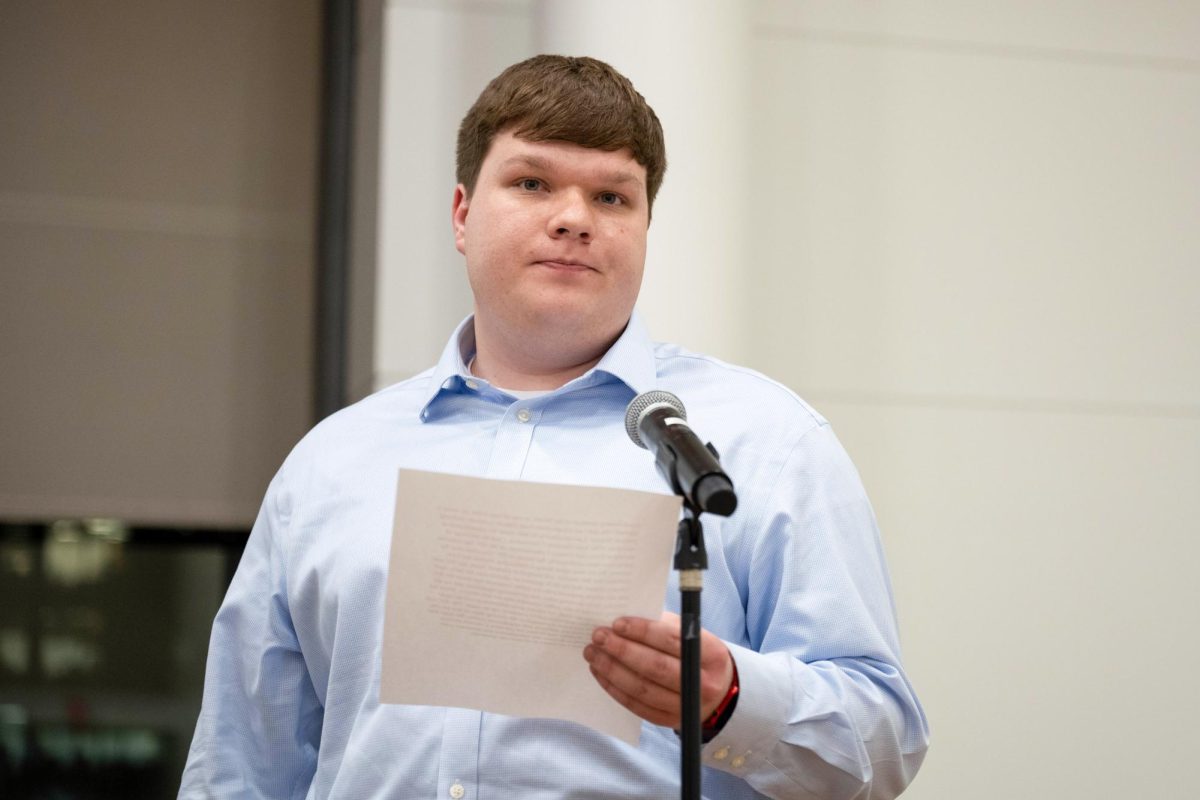A week ago there was nothing remarkable about Kye Allums, a junior shooting guard on the women’s basketball team. But as of Monday night, Allums became remarkable in a way no other player is: He’s the first openly transgender player to play Division I college basketball.
Allums, who identified himself as a lesbian through high school, said he began to notice differences in himself when people would refer to him using feminine pronouns.
“I just feel more comfortable with things that men quote-unquote do,” he said. “Just people saying ‘he’ makes me feel at ease, but if people say ‘her,’ it doesn’t sit well with me.”
Allums, a native of Hugo, Minn., explained to OutSports.com that he finally came to the realization he was a man during a text message argument with his mother. “Who do you think you are, young lady?,” Allums said he remembers reading in a message from his mother, and the answer suddenly clicked.
To maintain his eligibility as a student athlete on the women’s basketball team, Allums – who averaged 7.4 points per game and shot .371 from beyond the three-point line last year – said he will hold off on any gender reassignment surgery or hormone therapy until April 2012, by which time he will have completed his eligibility as a student athlete.
Allums’ story, as well as his role as a pioneer for transgender athletes, has drawn attention from national media and has made him a hero in the transgender community. It’s a role Allums said he knew he was stepping into when he announced his decision to self-identify as male. The attention, both positive and negative, is something he’s also comfortable with.
“I really didn’t know what to expect,” he said. “I guess that’s good because that means I’m going to be getting out an issue and clearing things up, or trying to clear things up for people who don’t understand something. That was a good thing.”
Allums, who first made his decision public Monday in an interview with OutSports.com, said his biggest fear in coming out as a transgender person wasn’t the negative attention he might receive, but the possibility that making his choice public might make him ineligible to play college basketball.
When he first realized as a freshman that he self-identified as a man, Allums initially decided to keep his decision private until after graduation. Once he realized – after research and conversations with friends and teammates – that coming out as a transgender individual wouldn’t interfere with his basketball eligibility, he made the decision to reveal his identity.
“It made me mad because I shouldn’t have to feel like this, I shouldn’t have to feel like I should even have to go through this and say anything about myself,” Allums said. “In reality, in this world, you have to feel like that because people just don’t understand.”
The process began last season, when Allums told his teammates and started correcting people who used female pronouns when describing him. Telling his head coach Mike Bozeman was a more difficult proposition. Religious comments from Bozeman in the past made Allums uncertain if the coach would be accepting of what he had to tell him, but Bozeman quickly put Allums’ fears to rest.
“Halfway into it, he made me comfortable,” Allums said. “Just being like, ‘Why were you nervous to tell me in the first place?’ By him telling me that he had my back and that it was never gonna change and I shouldn’t have assumed anything.”
Bozeman, who often refers to his team as a “basketball family,” said that his reaction to the news was one of immediate compassion and concern for his player.
“I’m a father of five and I count my team in that degree as my extended family. Our relationship hasn’t changed and it won’t change,” Bozeman said. “We’re a basketball family, and I just immediately felt like I needed to support Kye in any way possible, as I would any other student athlete that’s under my watch.”
Allums agrees that his relationship with Bozeman hasn’t changed since he found out about Allums’ decision.
“He still yells at me when I jump off the wrong foot, he still tries to box with me and stuff. He still talks about my mohawk and it not being all combed out,” Allums said.
Allums said he’s gotten numerous phone calls, text messages and Facebook messages in support.
“The one from Germany, that was crazy. That’s when I was like, ‘Wow,'” Allums said. “That one was really special. And I got one from an old teammate from junior high when I played with her, and I didn’t even know that she still knew who I was and she was saying how awesome I was and all these other things.”
He said it is a relief that he can finally be himself in front of everyone.
“I didn’t talk as much. I wasn’t being me. And I’m a talkative person, I could talk for days, but I wouldn’t talk to my teammates, I wasn’t talking to my friends, I wasn’t texting people. People were like, ‘What’s wrong with you?’ and I just wasn’t being me,” Allums said of his life before making his choice public. “By saying something, I was like, ‘Ok, I can go back to just being me and focus.'”






